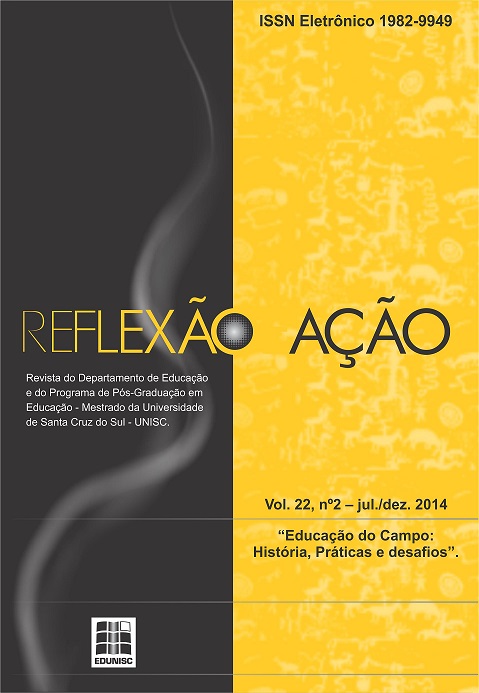TO READ, WRITE AND TELL: WAYS TO BE TEACHER IN SCHOOL EVERYDAY IN LOMBA GRANDE/RS (1940-1950)
DOI:
https://doi.org/10.17058/rea.v22i2.4948Keywords:
Teacher Constitution, Rural Education, PracticesAbstract
The objective is to characterize the possible and invented ways and (re) invented to provide teacher / to multigrade classes in rural Lomba Grande neighborhood of Novo Hamburgo/RS from 1940 to 1950. This is a study of history of education, and that relies on documentary analysis and narrative records of teachers whose teaching career has been developed in public schools. From the 1940s there was an increase in the number of schools in the city of Novo Hamburgo, effect of rural depopulation and political context of the period, especially in areas of German colonization. Throughout the analysis from the perspective of cultural history is evident in the appearance of the acquired knowledge in practice in everyday routines and cultural experiences accumulated by the subjects. Teachers who have drawn remember example of his teachers to plan and conduct their classes in the early days of teaching. In this sense, the possible way to be a teacher was to master the minimum knowledge of primary school. Due to the difficulties of getting the teacher to rural areas, the practice of appointing "to teach reading, writing and arithmetic" was a common feature in this place. In addition to the in-service training courses and building a professional culture was consolidated from mediations among the most experienced teachers with those just beginning their careers.Downloads
Downloads
Published
How to Cite
Issue
Section
License
The submission of originals to this journal implies on the transference, by the author(s), of the printed and digital publishing rights. The author´s rights to the published articles are the author´s, the journal has the rights over the first publication. The author(s) can only use the same results in other publications, indicating clearly that this journal was the original publisher. Since we are an open access journal, the free use of articles is permitted for educational and scientific applications, as long as they inform the source according with the CC-BY license from Creative Commons.


